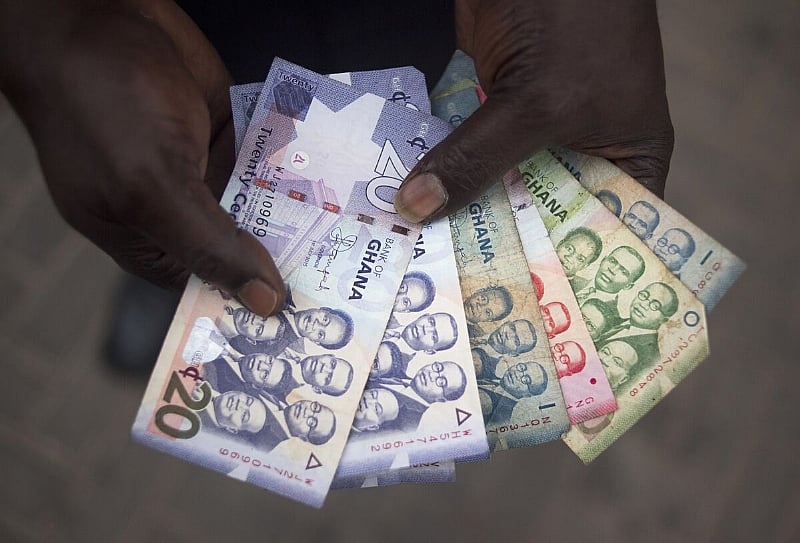The Ghanaian cedi experienced a slight depreciation against the US dollar on Wednesday, January 15, 2025, continuing a trend of volatility in the currency market. Both the buying and selling rates weakened by 3 pesewas compared to the previous day’s averages. According to Cedirates.com, a reliable source for currency information in Ghana, the cedi traded at GHS14.82 for buying and GHS15.29 for selling at 10:00 am. This represents a further slippage in the cedi’s value, adding to concerns about its overall stability against major international currencies. The forex bureau rates reflected an even weaker position for the cedi, with buying and selling rates of GHS15.70 and GHS16.20 respectively, highlighting a premium charged in the retail market.
The interbank market, where financial institutions trade currencies, presented a slightly different picture. Here, the cedi traded at GHS14.84 for buying and GHS14.85 for selling against the US dollar. This marginal difference between the buying and selling rates suggests a relatively stable environment within the interbank market, although the overall value against the dollar remained low. The interbank rates often serve as a benchmark for broader market trends and can influence the rates offered by forex bureaus and other financial service providers. The divergence between the interbank and forex bureau rates underscores the varying market dynamics and the potential for price discrepancies in different segments of the currency exchange market.
Beyond the US dollar, the Ghanaian cedi also faced challenges against other major currencies. The British Pound Sterling traded at an average buying rate of GHS17.91 and a selling rate of GHS18.61. Similarly, the Euro recorded buying and selling rates of GHS15.04 and GHS15.66 respectively. These figures indicate a weakening of the cedi against both currencies, mirroring the trend observed against the US dollar. The Bank of Ghana’s interbank rates for these currencies were slightly different, with the Pound Sterling selling at GHS18.09 and the Euro at GHS15.25. Again, this highlights the variations between the official interbank rates and those prevailing in the wider market.
Remittance services, a crucial source of foreign currency inflows for Ghana, offered slightly more competitive rates. LemFi and Afriex, two popular money transfer platforms, provided rates of GHS14.75 and GHS14.92 per US dollar respectively for transfers from the US and the UK. These rates are marginally stronger than those offered by traditional banks and forex bureaus, potentially attracting customers seeking better value for their money. For the British Pound, these platforms offered buying and selling rates of GHS18.00 and GHS18.75 respectively. Similarly, Afriex offered a selling rate of GHS15.55 for the Euro, while LemFi offered GHS15.14. The competitive rates offered by these platforms reflect the growing influence of digital remittance services in the currency exchange landscape.
The rates for online transactions using Visa and Mastercard also reflected the prevailing market conditions. Both payment processors offered a US dollar exchange rate of GHS15.89 for transactions involving subscriptions like Netflix, Spotify, and Apple Music. This rate is higher than the interbank rate but lower than the forex bureau rates, indicating a premium charged for international online transactions. The use of international payment platforms for online subscriptions has become increasingly common, and the exchange rates applied by these platforms play a significant role in the overall cost for Ghanaian consumers.
In summary, the Ghanaian cedi continued to face downward pressure against major international currencies on January 15, 2025. The depreciation against the US dollar, British Pound, and Euro was observed across various market segments, including forex bureaus, interbank trading, and remittance services. While the interbank market showed relative stability, the wider market experienced further weakening of the cedi. Remittance platforms offered more competitive rates, highlighting their growing role in the currency exchange market. The rates applied for online transactions using international payment cards also reflected the broader market trend, impacting the cost of online subscriptions for Ghanaian consumers. The continued volatility of the cedi underscores the ongoing challenges in the Ghanaian foreign exchange market and the need for effective measures to stabilize the currency.














